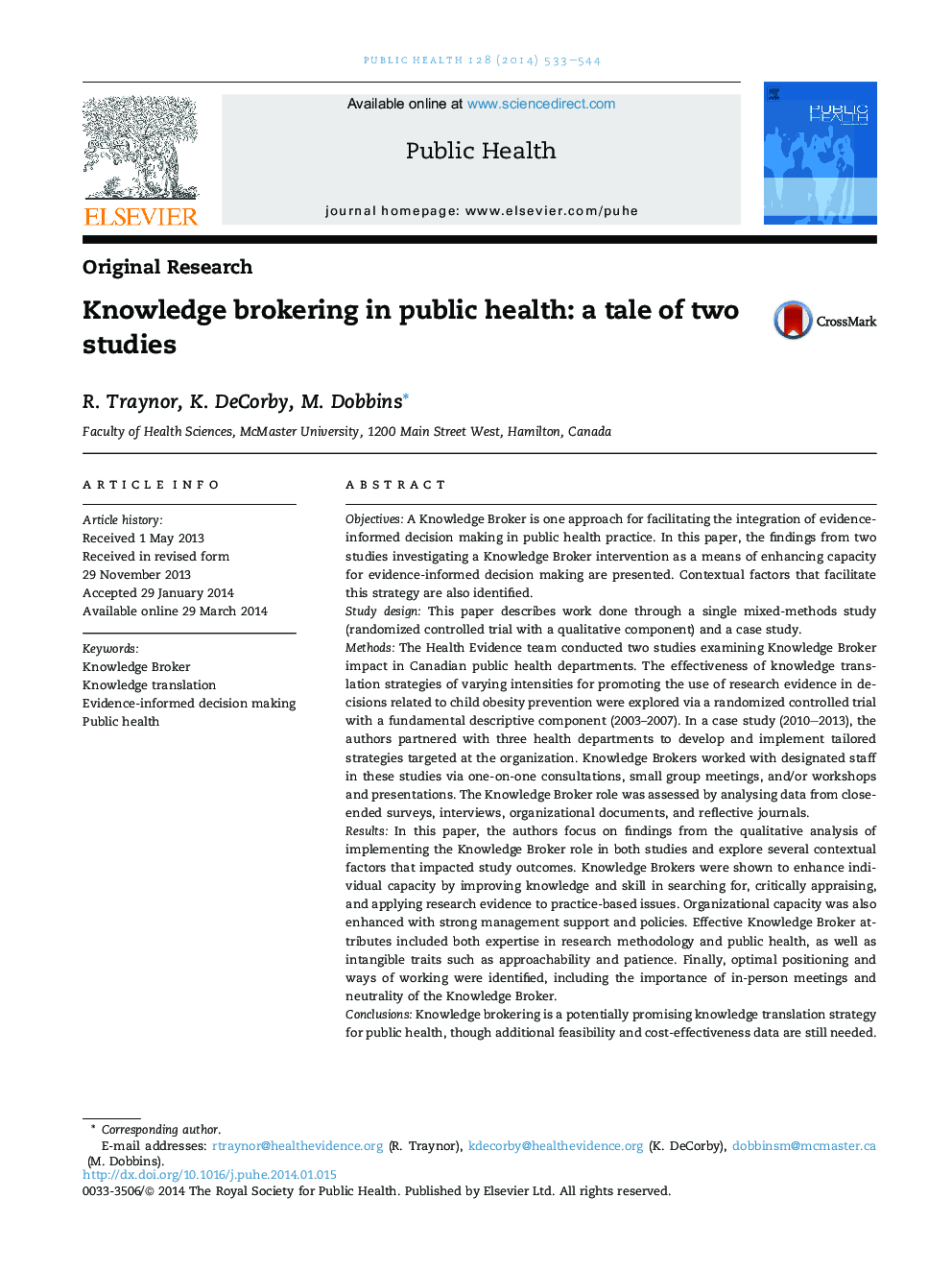| کد مقاله | کد نشریه | سال انتشار | مقاله انگلیسی | نسخه تمام متن |
|---|---|---|---|---|
| 1087423 | 951527 | 2014 | 12 صفحه PDF | دانلود رایگان |
ObjectivesA Knowledge Broker is one approach for facilitating the integration of evidence-informed decision making in public health practice. In this paper, the findings from two studies investigating a Knowledge Broker intervention as a means of enhancing capacity for evidence-informed decision making are presented. Contextual factors that facilitate this strategy are also identified.Study designThis paper describes work done through a single mixed-methods study (randomized controlled trial with a qualitative component) and a case study.MethodsThe Health Evidence team conducted two studies examining Knowledge Broker impact in Canadian public health departments. The effectiveness of knowledge translation strategies of varying intensities for promoting the use of research evidence in decisions related to child obesity prevention were explored via a randomized controlled trial with a fundamental descriptive component (2003–2007). In a case study (2010–2013), the authors partnered with three health departments to develop and implement tailored strategies targeted at the organization. Knowledge Brokers worked with designated staff in these studies via one-on-one consultations, small group meetings, and/or workshops and presentations. The Knowledge Broker role was assessed by analysing data from close-ended surveys, interviews, organizational documents, and reflective journals.ResultsIn this paper, the authors focus on findings from the qualitative analysis of implementing the Knowledge Broker role in both studies and explore several contextual factors that impacted study outcomes. Knowledge Brokers were shown to enhance individual capacity by improving knowledge and skill in searching for, critically appraising, and applying research evidence to practice-based issues. Organizational capacity was also enhanced with strong management support and policies. Effective Knowledge Broker attributes included both expertise in research methodology and public health, as well as intangible traits such as approachability and patience. Finally, optimal positioning and ways of working were identified, including the importance of in-person meetings and neutrality of the Knowledge Broker.ConclusionsKnowledge brokering is a potentially promising knowledge translation strategy for public health, though additional feasibility and cost-effectiveness data are still needed. The research presented here further highlights the importance of context and adopting a tailored approach to implement a Knowledge Broker strategy.
Journal: Public Health - Volume 128, Issue 6, June 2014, Pages 533–544
